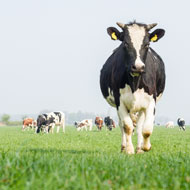BSE case ‘negligible risk’ to Scottish beef exports

Scotland can only reapply for negligible risk 11 years after the birth of the affected animal.
A recent case of BSE on a farm in Scotland is thought to present only a negligible risk to the country’s beef exports, the government has said.
Scotland will lose its negligible risk status for the disease and acquire controlled status instead - the same as the rest of Great Britain.
Minister for rural affairs, Mairi Gougeon, said: “Other countries in a similar situation that have lost their negligible-risk status and returned to controlled-risk status have not seen any impact on their trade or on their wider beef sector, so we hope that this will not present too much of a problem for the beef sector in Scotland. We will be keeping a close watch on the matter.”
Scotland can only reapply for negligible risk 11 years after the birth of the affected animal. Gougeon said there have been similar cases in other European countries, such as France and the Republic of Ireland, where isolated BSE cases were detected shortly after they gained negligible risk status.
“We could well be in the tail end of the epidemic we saw in the 1990s,” she added.
The minister stressed that the animal was not destined for the food chain and its carcase had been disposed of appropriately.
She added: “It is extremely disappointing to have a confirmed case of BSE in Scotland, but I can provide full assurances that all required steps have been taken to protect consumers, food safety and the farming and food sectors.”



 The Veterinary Medicines Directorate (VMD) is inviting applications from veterinary students to attend a one-week extramural studies (EMS) placement in July 2026.
The Veterinary Medicines Directorate (VMD) is inviting applications from veterinary students to attend a one-week extramural studies (EMS) placement in July 2026.